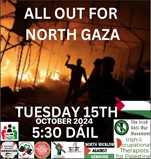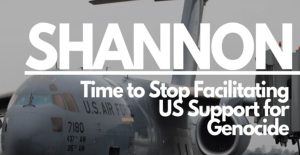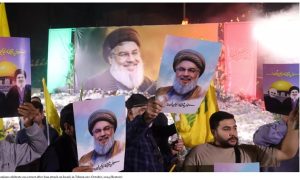Drone strikes
Reported deaths: Up to 3,180
Locations: Pakistan, Somalia, Yemen
The CIA drones programme is both the next phase in the so-called ‘War on Terror’ and the death penalty without trial. Reprieve is therefore working to expose and challenge the programme, along with Islamabad lawyer Shahzad Akbar and various international and Pakistani artists and activists.
The Bureau of Investigative Journalism reports that up to 3,180 people have been killed by US unmanned aircraft, or ‘drones’, in Pakistan since 2004 – with the numbers rapidly escalating under President Obama. As many as 1,007 victims have been wholly innocent, including 175 children. In Yemen, approximately forty drone strikes during the past decade have killed up to 138 civilians. Strikes in Somalia – commenced in 2007 – have reportedly taken up to 169 innocent lives so far.
Drone strikes
Reported deaths: Up to 3,180
Locations: Pakistan, Somalia, Yemen
The CIA drones programme is both the next phase in the so-called ‘War on Terror’ and the death penalty without trial. Reprieve is therefore working to expose and challenge the programme, along with Islamabad lawyer Shahzad Akbar and various international and Pakistani artists and activists.
The Bureau of Investigative Journalism reports that up to 3,180 people have been killed by US unmanned aircraft, or ‘drones’, in Pakistan since 2004 – with the numbers rapidly escalating under President Obama. As many as 1,007 victims have been wholly innocent, including 175 children. In Yemen, approximately forty drone strikes during the past decade have killed up to 138 civilians. Strikes in Somalia – commenced in 2007 – have reportedly taken up to 169 innocent lives so far.
Although it is well known that the drones carry cameras, so that a film exists of every attack, the CIA vigorously resists an open, transparent evaluation of the rules that govern missile strikes, as well as of the consequences of each one. Residents of Waziristan and the FATA regions of Pakistan strongly dispute the CIA’s claim that no ‘non-militant’ has been killed by drones in over a year, noting that women and children are among the victims.
In July 2011, Reprieve and Shahzad published an unprecedented array of photographs depicting the devastating impact of 28 drone attacks on innocent civilians in Waziristan and FATA (Federally Administered Tribal Areas). They were taken by Noor Behram, a 39 year old photographer from the North Waziristan Agency (NWA) who has been documenting civilian victims of CIA drones since 2007. Noor’s pictures and videos were also featured at Gaming in Waziristan, an event and exhibition organised by Reprieve from19 July- 5 August at the Beaconsfield Gallery.
Later in July, Shahzad Akbar filed an FIR (First Information Report) in Islamabad calling for a warrant for the arrest of John A. Rizzo, former acting chief counsel to the CIA, who has publicly boasted of his role in the drones programme.
On 28 October 2011, Reprieve and Shahzad Akbar’s Foundation for Fundamental Rights hosted the Waziristan Grand Jirga (council) in Islamabad, in order to open an international dialogue on drones. Tribal elders and victims’ families from North Waziristan attended, along with former cricketer Imran Khan, international human rights lawyers, activists, artists, civil society and political parties. The Jirga insisted on a new transparency, so that the world may make an informed judgment on the efficacy of the war waged on sovereign territory by the intelligence service of a foreign nation. Afterwards, tribal elders, victims’ families, international lawyers and human rights activists – along with thousands of Pakistani citizens – joined an anti-drone protest rally at the D-Chowk in front of Parliament, which has passed a resolution against drone strikes but failed to address the issue beyond that.
Reprieve also assisted in the dissemination of ‘Transparency Cameras’ across the region to record in real time the actual impact of drone missile strikes, as well as the psychological effects on innocent villagers of drones circling their homes for hours on end prior to any attack.
In the days following the jirga, one of its attendees – 16-year-old Tariq Aziz – was killed by a CIA drone strike. Tariq died along with his cousin, 12-year-old Waheed Khan, when a missile fired by a US drone hit their vehicle near their home in North Waziristan on Monday 31 October. Tariq had attended the jirga on the previous Friday, and had been planning to join Reprieve’s ‘Transparency Cameras’ project. When his car was hit, Tariq and his cousin had been travelling to a village near their home town of Mirali (Mubarak shahi) to pick up Tariq’s aunt. The missile reportedly struck when they were just 200 metres from his aunt’s house. The two boys were alone, and there was no suggestion that either had anything to do with terrorism. Notably, the strike which killed Tariq and his cousin was first reported as having killed “four militants,” according to unnamed “Pakistani security officials” who briefed the media. This was false. The strike, near Mirali, had in fact killed only Tariq and his football team-mate and cousin Waheed.
In November 2011, Reprieve and Leigh Day & Co, acting on behalf of Noor Khan, whose father was killed earlier that year in a drone strike on a jirga in North West Pakistan, asked William Hague to provide answers to key questions on how far the UK assists the US in its drone strike programme. Several reports had stated that British intelligence agencies have provided information on the whereabouts of alleged ‘militants’ targeted by the CIA’s illegal campaign, which has resulted in the deaths of hundreds, if not thousands, of civilians.
In December, Reprieve wrote to the US Ambassador to Pakistan, Cameron Munter, to inform him that we were going to bring him to justice for his complicity in the illegal killing of Pakistan citizens.
On February 1 2012, Reprieve’s Islamabad colleague Shahzad Akbar, of the Foundation for Fundamental Rights (FFR), called on Pakistan’s Government to demand the adoption of a UN resolution requiring that the USA stops carrying out drone strikes in its country.
On February 6, 2012, Reprieve’s colleagues at the Bureau of Investigative Journalism revealed that the CIA’s drone campaign in Pakistan has killed dozens of civilians who had gone to help rescue victims or were attending funerals.
On May 9, 2012, the legal charity FFR filed two separate constitutional petitions on behalf of the victims of a CIA drone strike in March 2012, launching legal action against the Pakistani Government in Peshawar’s High Court. The first petition was filed by Noor Khan over the death of his father, and the second was filed by the FFR on behalf of eight local families who lost family members in the attack. The petitions note the possibility of a agreement between the CIA and Pakistan, allowing drone strikes to kill civilians, and the Petitioners insist on the illegality of this, asking the court to order the Pakistani government to strengthen its protection of its citizens. This will be first case filed by victims of drone strikes against the government of Pakistan.






